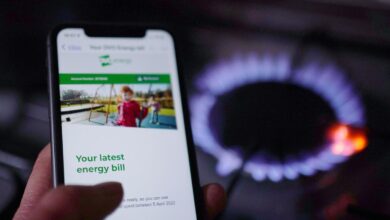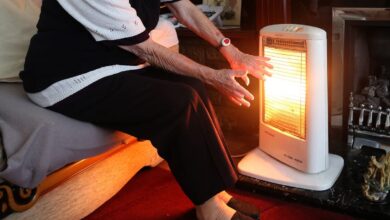Treasury gamble on households spending their pandemic savings to survive the cost of living crisis

The Treasury has withheld financial support during the cost of living crisis in the belief that households will be able to use their savings to weather the storm, Whitehall insiders told The Independent.
Money people didn’t spend while locked down at home during the pandemic was cited in discussions between chancellor Rishi Sunak and his team as a key reason to limit further government funding, sources said.
But the move was condemned by senior officials involved in the talks for ignoring poorer households with no savings and those who had spent all they might have saved.
“There’s a lack of understanding among his team about how severe the situation is for those on the lowest incomes,” a Whitehall source said. “They’ve got nothing in the bank.”
Another insider said the approach had underestimated the scale of the cost of living crisis – which has produced the worst real income squeeze since 1945 – and had failed to address the sharp inequalities between wealthy households and their poorer, income-dependent counterparts.
This was “particularly apparent for those households who are out of work and on benefits”, they said, adding: “The real-terms impact on these households is, and will prove, quite devastating.”
The government had hoped that consumers would feel emboldened by the prospect of abandoning pandemic restrictions, even as they face cost pressures, the source added.
“He’s been leaning on this idea that consumer confidence would rebound and people will start spending again; it’s the same logic as Eat Out to Help Out,” they said.
News of the Treasury’s fiscal hesitancy comes after Mr Sunak was widely criticised for sidestepping the needs of the poorest in his mini-Budget in March.
A source close to the chancellor pushed back against claims that he and his team had banked on people spending their savings, and suggested more help might come later in the year for hard-pressed households.
“Energy bills are capped until the autumn. We won’t know yet what the size of the rise will be, given the volatility of prices we are seeing now, and it’s right that we wait until we know how big the rise will be before we decide what the solution should be,” they said.
Inflation has reached fresh 30-year highs in recent months, and is set to rise further with an increase in the energy price cap this autumn. The cocktail of rising prices pushed a closely watched index of consumer confidence compiled by market research firm GfK to a level of -38 in April − the lowest level since 2008, during the great financial crisis.
Unusual savings habits during the pandemic lockdowns informed the Treasury’s thinking, sources said. Those with higher incomes were able to build up savings as they saw their spending on social activities, commuting and clothing fall.
In 2020, this effect pushed household savings up to levels not seen since records began in 1963.
Households saved £72bn in 2019, compared with £211bn and £163.7bn respectively in 2020 and 2021 before accounting for inflation, according to the Office for National Statistics’ quarterly accounts, which represent the most recent data. By the end of last year, household savings were equivalent to roughly 11 per cent of GDP, according to estimates from Swiss bank UBS.
However, while high- and middle-income households built up a cushion, those on lower incomes, who would in normal times rarely manage to set aside any funds and who faced a reduced income on furlough, or continued to travel for work, did not.
The state of household balance sheets has also changed rapidly in recent months, with savings either being moved from cash into less liquid assets, such as housing or investments, or simply being spent in order to cope with rapidly rising living costs.
“Not all of these savings are available for immediate use. That means there is less of a buffer than the immediate headline figures might suggest,” said Anna Titareva, a senior economist at UBS, noting research from the European Central Bank about savers’ behaviours in the eurozone. There is no comparable research from the Bank of England.
“Lower-income households will be less secure,” she added, noting that this was significant as “the propensity for spending is higher from income than from wealth”.





